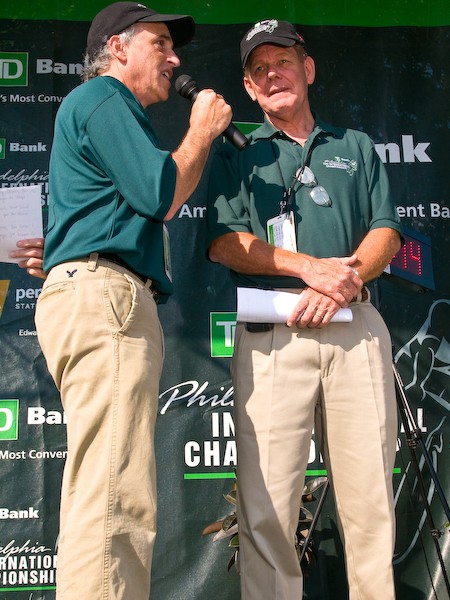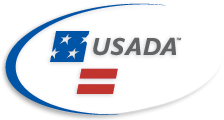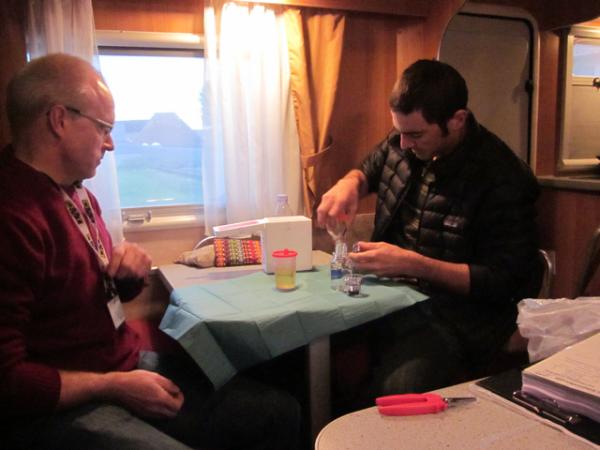US doping control burden falls to race promoters
Chauner calls for USA Cycling to invest in fighting doping



Professional cycling may have made strides in recent years toward cleaning up the sort of doping culture that resulted in Lance Armstrong and his team being found to have run what the US Anti-Doping Agency called "the most sophisticated, professionalized and successful doping program that sport has ever seen", but US race promoter David Chauner has called for more work to be done at fighting doping at the grassroots level.
Chauner, who organises the Philadelphia International and Liberty Classic one-day races, has written an open letter to the sport's governing bodies, including USA Cycling, pointing out flaws in the domestic anti-doping control system - flaws that sometimes lead to race promoters having to foot the bill for the USADA or UCI testers to come to their event.
More controls are needed in the country's top events, he says, because "rumors are rife, but unproved, that some foreign riders have come to race here and have joined American teams because testing is sporadic and there is now enough cash in prize lists and team contracts to make a decent, albeit modest, living."
That is not to say there isn't doping at the amateur level as well: in 2012, eight American amateur riders were sanctioned for doping, three were tested at one of the many national championship events, one at a Paralympic World Cup outside the USA, but two were caught at a Gran Fondo in New York and one out of competition.
One group in Florida even raised its own funds in order to bring doping controllers to local events, specifically because they felt the problem was out of control. They raised $17,000 according to Chauner and secured USADA testing at several events that would have otherwise gone without controls.
Small fraction of events, athletes are ever tested
In 2012, the USADA has caught fewer than a dozen cyclists for doping in the USA, a small fraction of the more than 70,000 licensed racers under USA Cycling. Cyclingnews estimates that far fewer than 100 races of USA Cycling's 3,041 events have a USADA presence. In 2011, USA Cycling's arrangement with USADA to provide testing services free of charge led to only 418 athletes being tested - that number is spread across road, cyclo-cross, track, mountain bike and BMX disciplines, with multiple fields and athletes’ being controlled at each event USADA attends.
The latest race content, interviews, features, reviews and expert buying guides, direct to your inbox!
Chauner has called upon USA Cycling to devote some of its $12 million budget to adding more doping controls to its events, with a focus on national calendar events - the NRC and criterium calendars.
Currently, USA Cycling relies upon its allotment from USADA which typically runs in the range of 400 controls per year across all disciplines. USA Cycling chooses the races it wants to be controlled, typically UCI B-list events, national championships and other races which they deem a priority. Out of that "wish-list", USADA chooses the events which it can cover, charging neither USA Cycling nor the promoter.
The number of USADA-run controls previously included some UCI events on a "B-list", but some races which are required to perform controls by the UCI, in particular cyclo-cross races, which aren't in an Olympic discipline, were left out of the USADA allotment.
This "represents an expensive proposal to the race directors," said USA Cycling's technical director Shawn Farrell.
Those expenses for a UCI race can run in the thousands of dollars: the race promoters are obligated to pay for the expenses of the controllers, provide space and materials and pay for the lab testing. For a typical cyclo-cross race, Farrell estimates it would cost around $4,000 for six doping controls.
"I can tell you that this year, we have three cyclo-cross races put on the B-list, and USA Cycling is covering the costs of those tests for the race directors, primarily as the policy change was recent, and none of the race directors had anticipated a budget increase of that magnitude."
The lack of funding for doping controls does not sit well with Chauner, who told Cyclingnews, "It doesn't surprise me that the UCI will not be footing bills for testing. The governing bodies (UCI and USAC) don't seem to realize that they need to make significant financial investment to show they are serious about cleaning up the sport, starting at the grass roots level.
"The stakeholders who pay for sanctions, team affiliations and licenses need to see a good portion of their fees go toward ensuring that cycling regains credibility in the eyes of sponsors, the public and those parents whose sons and daughters might consider competitive cycling."

Laura Weislo has been with Cyclingnews since 2006 after making a switch from a career in science. As Managing Editor, she coordinates coverage for North American events and global news. As former elite-level road racer who dabbled in cyclo-cross and track, Laura has a passion for all three disciplines. When not working she likes to go camping and explore lesser traveled roads, paths and gravel tracks. Laura specialises in covering doping, anti-doping, UCI governance and performing data analysis.